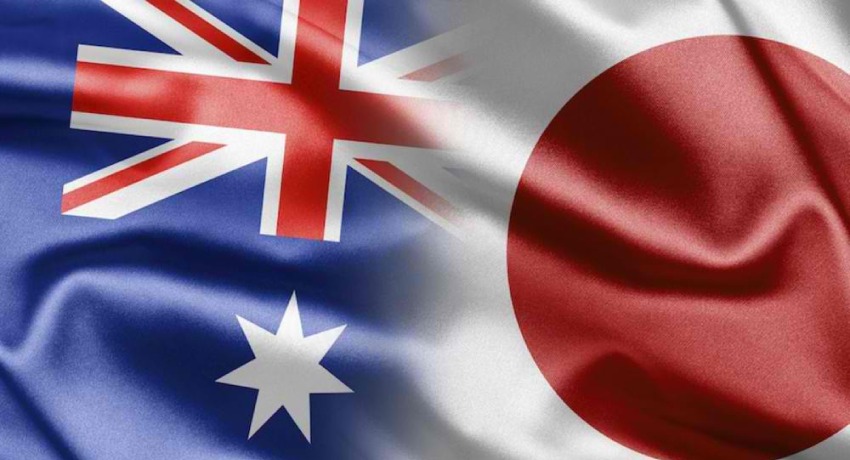Following Minister for Defence Linda Reynolds’ first official visit to Tokyo, Australia and Japan have committed to advance their level of defence co-operation with a keen eye on the Indo-Pacific.
To continue reading the rest of this article, please log in.
Create free account to get unlimited news articles and more!
Minister Reynolds' meeting with her Japanese counterpart, Tarō Kōno, emphasised the need for strengthening the strategic partnership between the two countries as the "Indo-Pacific security dynamics" become more challenging.
Noting the success of the first bilateral fighter jet exercise, Bushido Guardian, and Japan’s largest ever participation in the Australia-US joint exercise Talisman Sabre in 2019, the two defence heads committed to deepen the "Special Strategic Partnership between the two countries and aimed at contributing to a free, open, inclusive and prosperous Indo-Pacific region" moving forward into 2020.
The following commitments were made by the ministers during their meeting:
- regularising Japan Air Self-Defense Force’s participation in Exercise Pitch Black commencing in 2020 in Australia, and fighter exercise Bushido Guardian in Japan;
- progressing the establishment of an Australian Army liaison officer in the Japan Ground Self-Defense Force to further enhance co-operation and deepen interoperability; and
- the establishment of a program to exchange defence scientists and engineers to deepen bilateral collaborative defence research and development between Japan's Acquisition, Technology and Logistics Agency and Australia's Defence Science and Technology Group
The two defence ministers also confirmed that the two countries would "make efforts towards concluding a reciprocal access agreement which would improve administrative, policy, and legal procedures to facilitate joint operations and exercises".
The commitment from Japan is in line with the route it has followed for the past few years, as Tokyo "made friends" with regional nations.
In September, New Zealand and Japan also committed to strengthening their defence ties, boosting their bilateral strategic partnership.
These moves are in line with Japan's JFY2019 Defense Related Budget Request, which noted that “the Japan-US alliance as well as defence co-operation with India, Australia, ASEAN countries and other partners can work very effectively in maintaining peace and stability of Japan and the region. Japan should develop a defence capability that can further deepen and expand these endeavours”.
It doesn't take a genius to know that these moves are largely coming about due to Japan's "uneasiness" about its proximity to its old foe China, as well as the always rogue North Korea.
In fact, the media release from the Australian and Japanese ministers specify as much.
"The ministers exchanged their views on regional issues including the South China Sea, the East China Sea and North Korea," the release reads.
"The ministers discussed the recent series of ballistic missile launches by North Korea, which is a serious threat to the regional security and condemned the launches as violation of United Nations Security Council Resolutions (UNSCRs).
"The ministers remained committed to efforts to achieve North Korea’s complete, verifiable and irreversible dismantlement of all weapons of mass destruction and ballistic missiles of all ranges of North Korea in accordance with all relevant UNSCRs and urged North Korea to fully comply with its international obligations."
While these intentions from Japan are out in the open air, that isn't at all a negative thing.
It's also in Australia's best interest to be making friends in the Indo-Pacific, deepening key regional ties to ensure a free and open place for Australia and its neighbours to live.
"The ministers reiterated their determination to work bilaterally to enhance defence and security co-operation with partners in the Indo-Pacific region including in the fields of capacity building, maritime security and humanitarian assistance and disaster relief," the release added.
"The ministers welcomed and reaffirmed their commitment to implement the relevant UNSCRs and sustained international co-operation to deter, disrupt, and ultimately eliminate illicit activities, such as illegal ship-to-ship transfers."

 Login
Login







